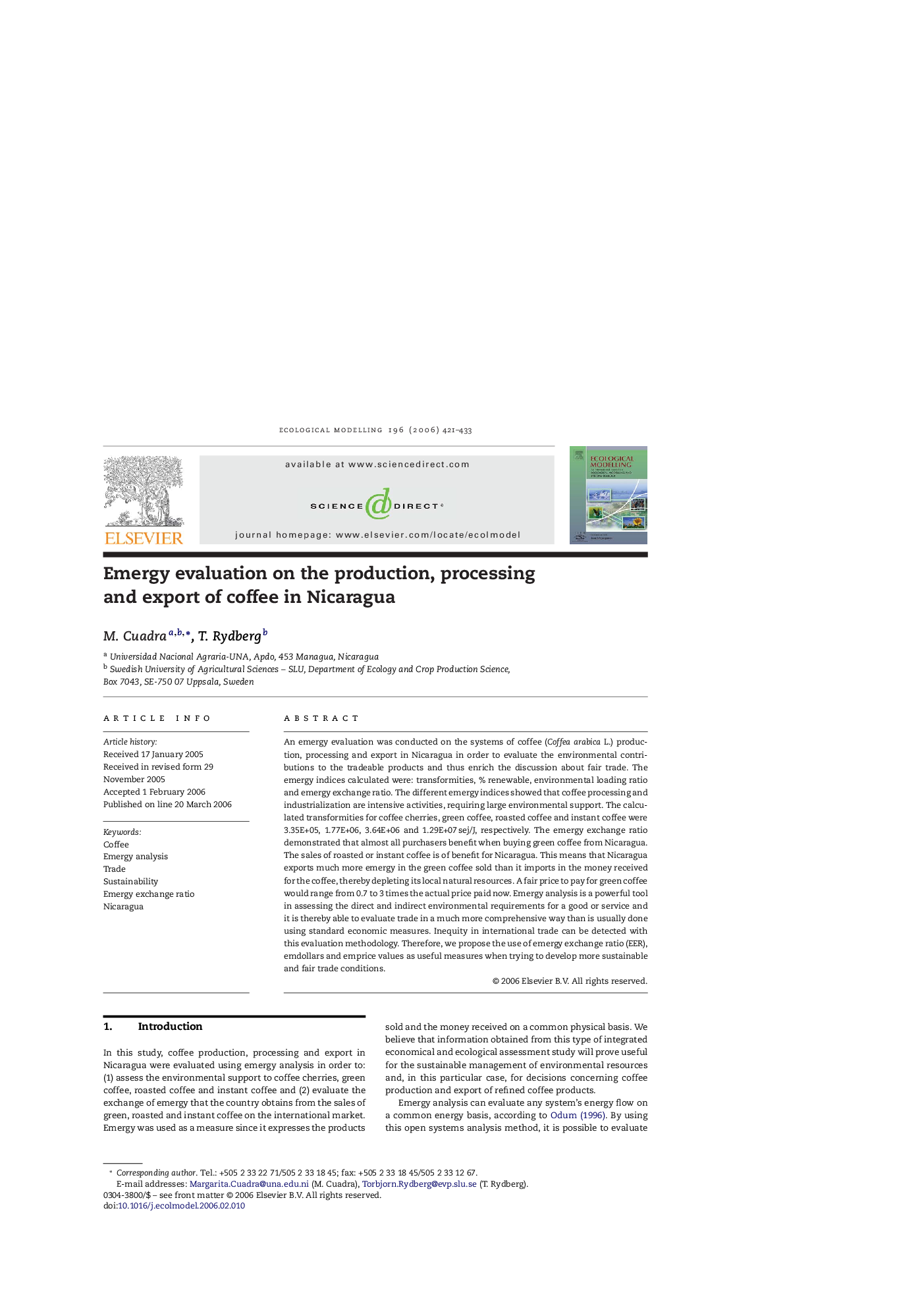| Article ID | Journal | Published Year | Pages | File Type |
|---|---|---|---|---|
| 4379159 | Ecological Modelling | 2006 | 13 Pages |
Abstract
An emergy evaluation was conducted on the systems of coffee (Coffea arabica L.) production, processing and export in Nicaragua in order to evaluate the environmental contributions to the tradeable products and thus enrich the discussion about fair trade. The emergy indices calculated were: transformities, % renewable, environmental loading ratio and emergy exchange ratio. The different emergy indices showed that coffee processing and industrialization are intensive activities, requiring large environmental support. The calculated transformities for coffee cherries, green coffee, roasted coffee and instant coffee were 3.35E+05, 1.77E+06, 3.64E+06 and 1.29E+07Â sej/J, respectively. The emergy exchange ratio demonstrated that almost all purchasers benefit when buying green coffee from Nicaragua. The sales of roasted or instant coffee is of benefit for Nicaragua. This means that Nicaragua exports much more emergy in the green coffee sold than it imports in the money received for the coffee, thereby depleting its local natural resources. A fair price to pay for green coffee would range from 0.7 to 3 times the actual price paid now. Emergy analysis is a powerful tool in assessing the direct and indirect environmental requirements for a good or service and it is thereby able to evaluate trade in a much more comprehensive way than is usually done using standard economic measures. Inequity in international trade can be detected with this evaluation methodology. Therefore, we propose the use of emergy exchange ratio (EER), emdollars and emprice values as useful measures when trying to develop more sustainable and fair trade conditions.
Related Topics
Life Sciences
Agricultural and Biological Sciences
Ecology, Evolution, Behavior and Systematics
Authors
M. Cuadra, T. Rydberg,
